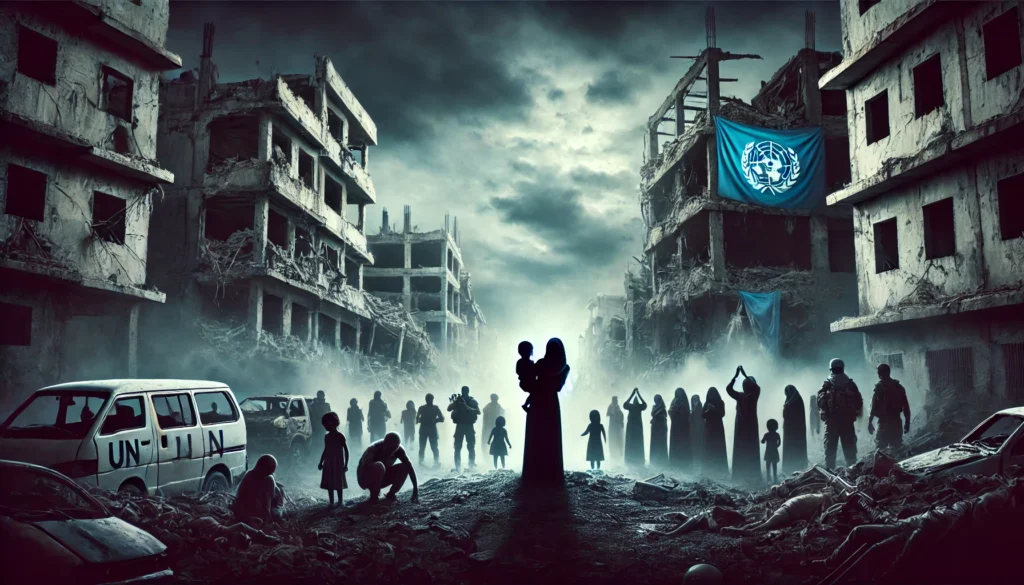The latest report from the United Nations reveals a drastic increase in civilian casualties in 2023, with alarming statistics highlighting the severe impact on women and children. According to UN Human Rights Commissioner Volker Türk, the proportion of women killed has doubled, and the number of children who lost their lives has tripled compared to previous years.
In a powerful address to the UN Human Rights Council in Geneva, Volker Türk outlined the grim findings of his office. He emphasised a 72% rise in civilian deaths due to armed conflicts, marking a shocking escalation in violence and disregard for human life. “Belligerents around the world are pushing beyond the borders of what is acceptable — and legal,” Türk stated. His speech painted a harrowing picture of the daily atrocities faced by civilians, including targeted killings, destruction of infrastructure, and the widespread use of heavy artillery on communities.
The UN rights chief expressed his profound concern over the global situation, accusing conflicting parties of showing “utter contempt for the other,” trampling on human rights with impunity. He highlighted the routine nature of civilian casualties, the bombing of hospitals, and the pervasive dehumanising rhetoric that fuels these conflicts. This disdain for international norms and humanitarian laws, Türk noted, is evident in the increasing death tolls and the suffering of innocent people.
Particularly in Gaza, Türk condemned the “unconscionable death and suffering” inflicted on the population. He criticised the escalation of Israeli operations in Rafah, which since May has resulted in the forcible displacement of nearly one million Palestinians and a further deterioration in humanitarian aid access. The situation in Gaza has led to over 120,000 casualties, predominantly affecting women and children, since early October. These figures underscore the urgent need for international intervention and a reevaluation of conflict strategies to protect civilian lives.
Beyond Gaza, Türk’s address covered other regions plagued by conflict, including Ukraine, the Democratic Republic of Congo, and Syria. In Sudan, he described the country as being “destroyed in front of our eyes” by warring factions that have blatantly disregarded the rights of their people. The ongoing conflicts have exacerbated the need for humanitarian assistance at a time when resources are increasingly scarce.
Türk also drew attention to the disparity between humanitarian and military spending, which starkly reveals global priorities. Humanitarian aid remains woefully underfunded, with a staggering gap of $40.8 billion (€38 billion) between required and available resources by the end of May 2024. In contrast, global military expenditure reached almost $2.5 trillion (€2.3 trillion) in 2023, marking a 6.8% increase from the previous year. This was the steepest year-on-year rise since 2009, highlighting a troubling trend of prioritising defence over humanitarian needs.
The UN report calls for immediate action to address these disparities and the rampant violations of human rights. Türk’s compelling speech serves as a wake-up call to the international community, urging a shift in focus towards protecting civilians and upholding humanitarian principles in conflict zones.
This increase in civilian casualties and the skewed global spending priorities underscore the urgent need for concerted international efforts to mitigate the suffering of vulnerable populations caught in the crossfire of war.






